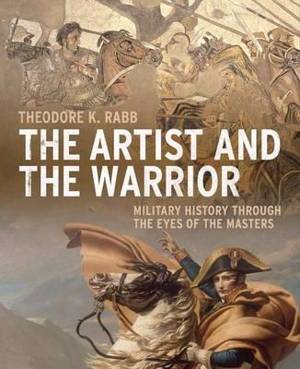
- Retrait gratuit dans votre magasin Club
- 7.000.000 titres dans notre catalogue
- Payer en toute sécurité
- Toujours un magasin près de chez vous
- Retrait gratuit dans votre magasin Club
- 7.000.0000 titres dans notre catalogue
- Payer en toute sécurité
- Toujours un magasin près de chez vous
The Artist and the Warrior
Military History Through the Eyes of the Masters
Theodore K RabbDescription
An illustrated exploration of artists' depictions of war and warriors, from antiquity to modern times
How have artists across the millennia responded to warfare? In this uniquely wide-ranging book, Theodore Rabb blends military history and the history of art to search for the answers. He draws our attention to masterpieces from the ancient world to the twentieth century--paintings, sculpture, ceramics, textiles, engravings, architecture, and photographs--and documents the evolving nature of warfare as artists have perceived it.The selected works represent landmarks in the history of art and are drawn mainly from the western tradition, though important examples from Japan, India, and the Middle East are also brought into the discussion. Together these works tell a story of long centuries during which warfare inspired admiration and celebration. Yet a shift toward criticism and condemnation emerged in the Renaissance, and by the end of the nineteenth century, glorification of the warrior by leading artists had ceased. Rabb traces this progression, from such works as the Column of Trajan and the Titian "Battle of Lepanto", whose makers celebrated glorious victories, to the antiwar depictions created by Brueghel, Goya, Picasso, and others. Richly illustrated and accessibly written, this book presents a study of unprecedented sweep and multidisciplinary interest.
Spécifications
Parties prenantes
- Auteur(s) :
- Editeur:
Contenu
- Nombre de pages :
- 288
- Langue:
- Anglais
Caractéristiques
- EAN:
- 9780300126372
- Date de parution :
- 01-02-12
- Format:
- Livre relié
- Format numérique:
- Genaaid
- Dimensions :
- 196 mm x 238 mm
- Poids :
- 648 g

Les avis
Nous publions uniquement les avis qui respectent les conditions requises. Consultez nos conditions pour les avis.






